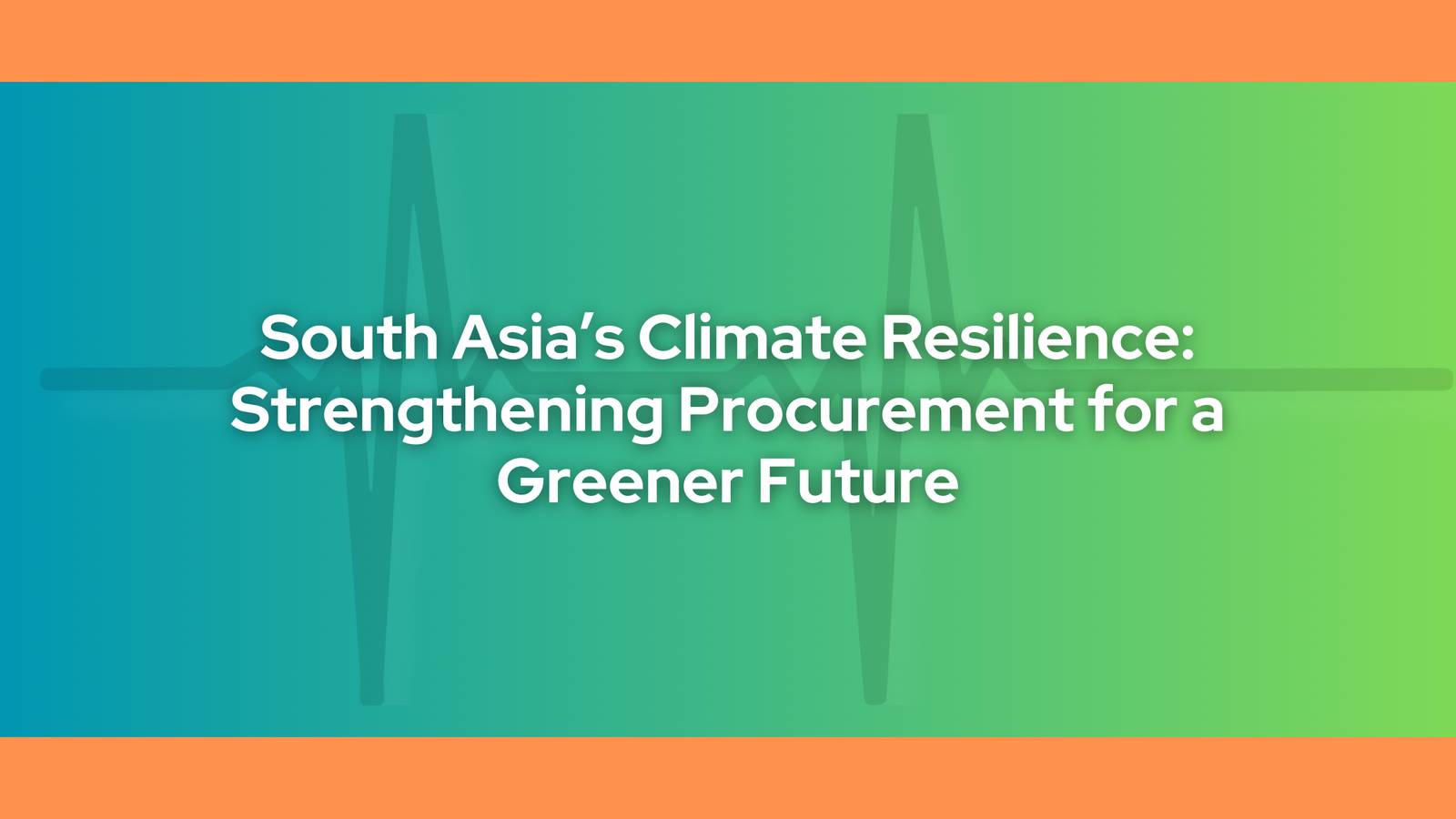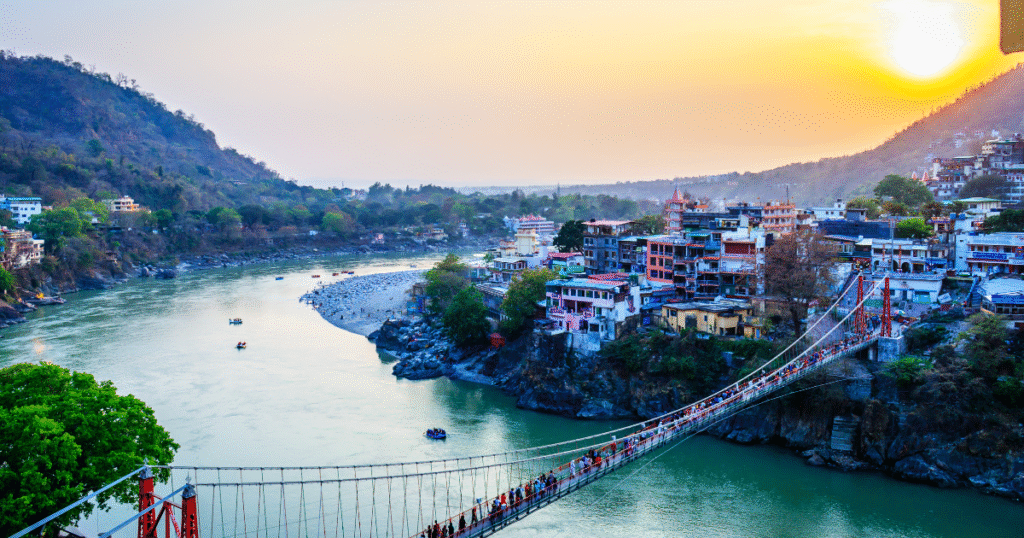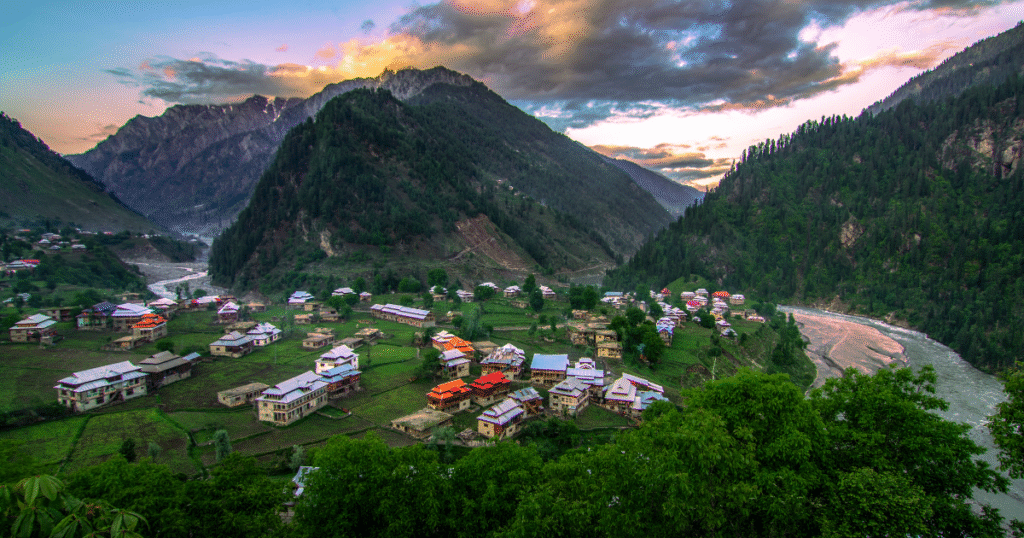
Natural calamities are never new to the South Asian region. From droughts and heat waves to cyclones and floods, the region has experienced many disasters brought about by climate change. These catastrophes affect not just the countries’ economy and progress but also the livelihood of approximately 2 billion people in the area. There is a need for comprehensive and economy-wide initiatives to fight these threats and strengthen South Asia’s climate resilience.
Sustainable procurement and supply chain strategies are essential to ensure adaptable solutions. They also work with governments and businesses to increase resilience. In South Asia, digital procurement technology can improve its resilience to climate impacts. Together with low-carbon agriculture and green infrastructure projects, it can also foster long-term economic stability.
With South Asia having some of the fastest-progressing nations in the world, it is important to counter its climate vulnerability. These calamities could undo the region’s decades of arduous economic and development progress.
Despite these obstacles, South Asia is capitalizing on its advantages to become a leader in climate solutions. The region has positioned itself at the vanguard of global climate action through creative adaptation techniques and fast-growing clean energy industries.

To reduce the hazards associated with extreme weather and sea level rise, governments throughout South Asia are investing heavily in climate-resilient infrastructure. With an emphasis on sustainable development and urban resilience, in December 2024, the Asian Development Bank (ADB) authorized a $500 million loan to fund green infrastructure initiatives in India. To safeguard communities from climate dangers, these investments prioritize environmentally friendly materials, energy-efficient building techniques, and nature-based solutions.
Making sure that these infrastructure projects follow sustainability and resilience guidelines is a crucial responsibility of procurement specialists. Infrastructure projects can drastically lower carbon footprints by partnering with environmentally conscious vendors and strategically procuring low-carbon components. Incorporating climate risk assessments into procurement rules can also optimize supply chains for sustainability in the long run.
Meanwhile, in 2023, Bangladesh collaborated with international partners and multilateral banks and established the Bangladesh Climate and Development Platform. This initiative was created to address the country’s climate finance needs and aims to assist in developing climate initiatives that are accompanied by appropriate funding strategies.

As nations give climate resilience top priority in their planning and policies, South Asia is emerging as a significant climate finance market. The floods in Pakistan in 2022 highlighted the region’s climate vulnerability. These floods resulted in $15.2 billion in damages and $16.3 billion needed for rehabilitation. At COP29, Pakistan responded by launching its first National Climate Finance Strategy. This is to raise money for adaptation and mitigation in vital areas like urban infrastructure, electricity, and agriculture. With the latter being one of the industries most vulnerable to climate change.
Agriculture is also a significant contributor to South Asia’s economy. Development Asia reports that Pakistan is implementing techniques such as the System of Rice Intensification (SRI) and alternating wetness and drying (AWD) to shift to resilient, low-carbon rice farming.
Sustainable, innovative, and policy-aligned procurement practices are essential to South Asia’s climate resilience. If investments are made in green infrastructure, sustainable agriculture, and cooperative platforms, supply chains will become more effective and ecologically conscious. With smart sourcing and prudent decision-making, procurement professionals have a rare chance to bring about significant change as the region faces climate problems. South Asia can create a robust and sustainable future for future generations by giving climate-conscious procurement priority.